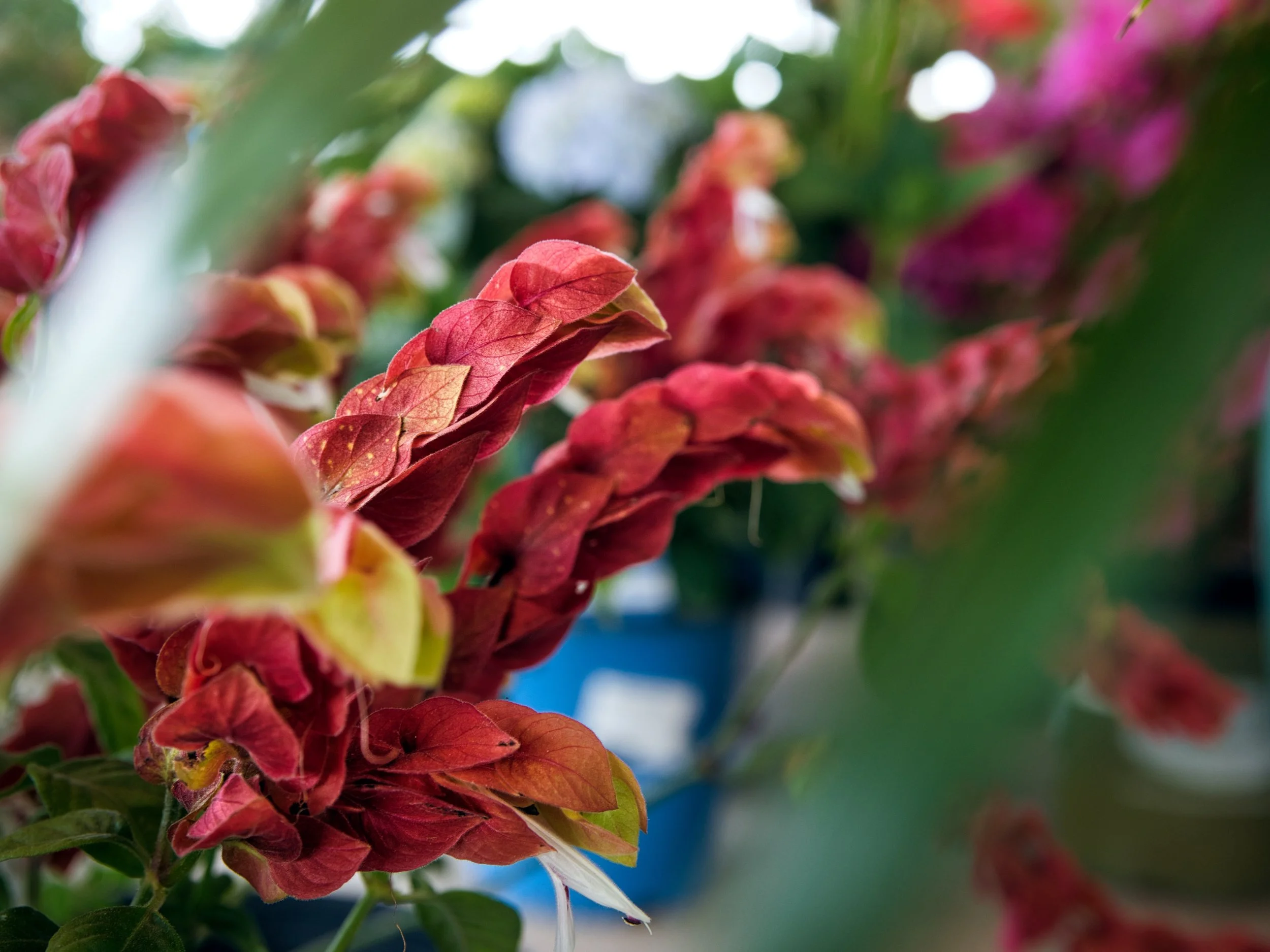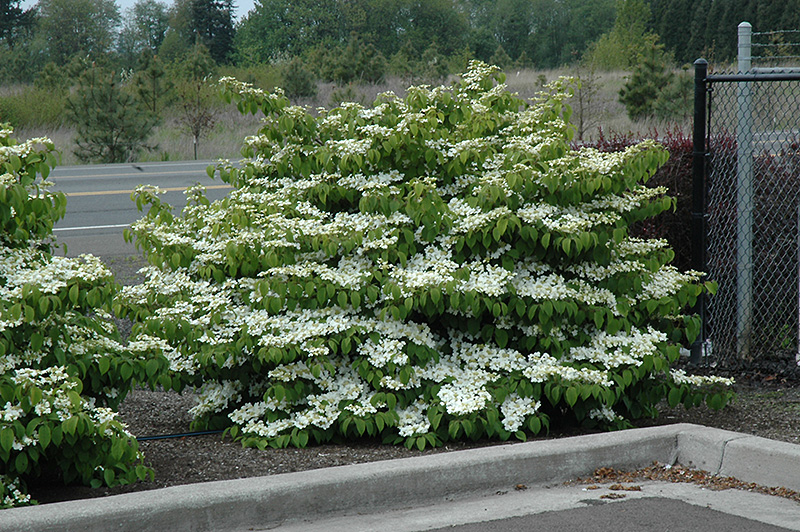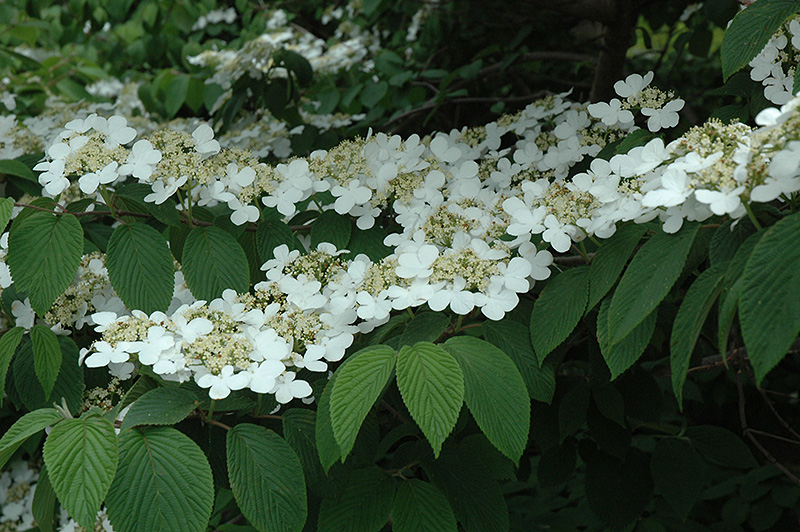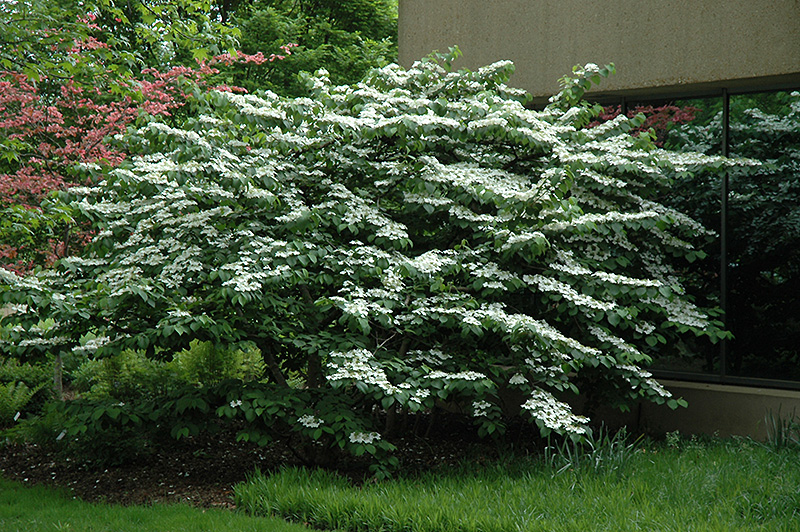Shasta Doublefile Viburnum
Viburnum plicatum 'Shasta'
Height: 6 feet
Spread: 10 feet
Sunlight:
![]()
![]()
Hardiness Zone: 5a
Description:
A spectacular shrub when in bloom, clusters of snowy white flowers held atop the branches in spring; broadly spreading with attractive horizontal branching, showy red fruits and good fall color; striking when used in groupings; best pruning May-Jun
Ornamental Features
Shasta Doublefile Viburnum is clothed in stunning white lacecap flowers held atop the branches from mid spring to mid summer. The red fruits are held in abundance in spectacular clusters . It has dark green deciduous foliage. The serrated pointy leaves turn an outstanding brick red in the fall.
Landscape Attributes
Shasta Doublefile Viburnum is a multi-stemmed deciduous shrub with a shapely form and gracefully arching branches. Its average texture blends into the landscape, but can be balanced by one or two finer or coarser trees or shrubs for an effective composition.
This is a relatively low maintenance shrub, and should only be pruned after flowering to avoid removing any of the current season's flowers. It is a good choice for attracting birds and butterflies to your yard, but is not particularly attractive to deer who tend to leave it alone in favor of tastier treats. It has no significant negative characteristics.
Shasta Doublefile Viburnum is recommended for the following landscape applications;
- Accent
- Mass Planting
- Hedges/Screening
- General Garden Use
Planting & Growing
Shasta Doublefile Viburnum will grow to be about 6 feet tall at maturity, with a spread of 10 feet. It tends to fill out right to the ground and therefore doesn't necessarily require facer plants in front, and is suitable for planting under power lines. It grows at a medium rate, and under ideal conditions can be expected to live for 40 years or more.
This shrub does best in full sun to partial shade. It does best in average to evenly moist conditions, but will not tolerate standing water. It is not particular as to soil type or pH. It is highly tolerant of urban pollution and will even thrive in inner city environments. This is a selected variety of a species not originally from North America.




